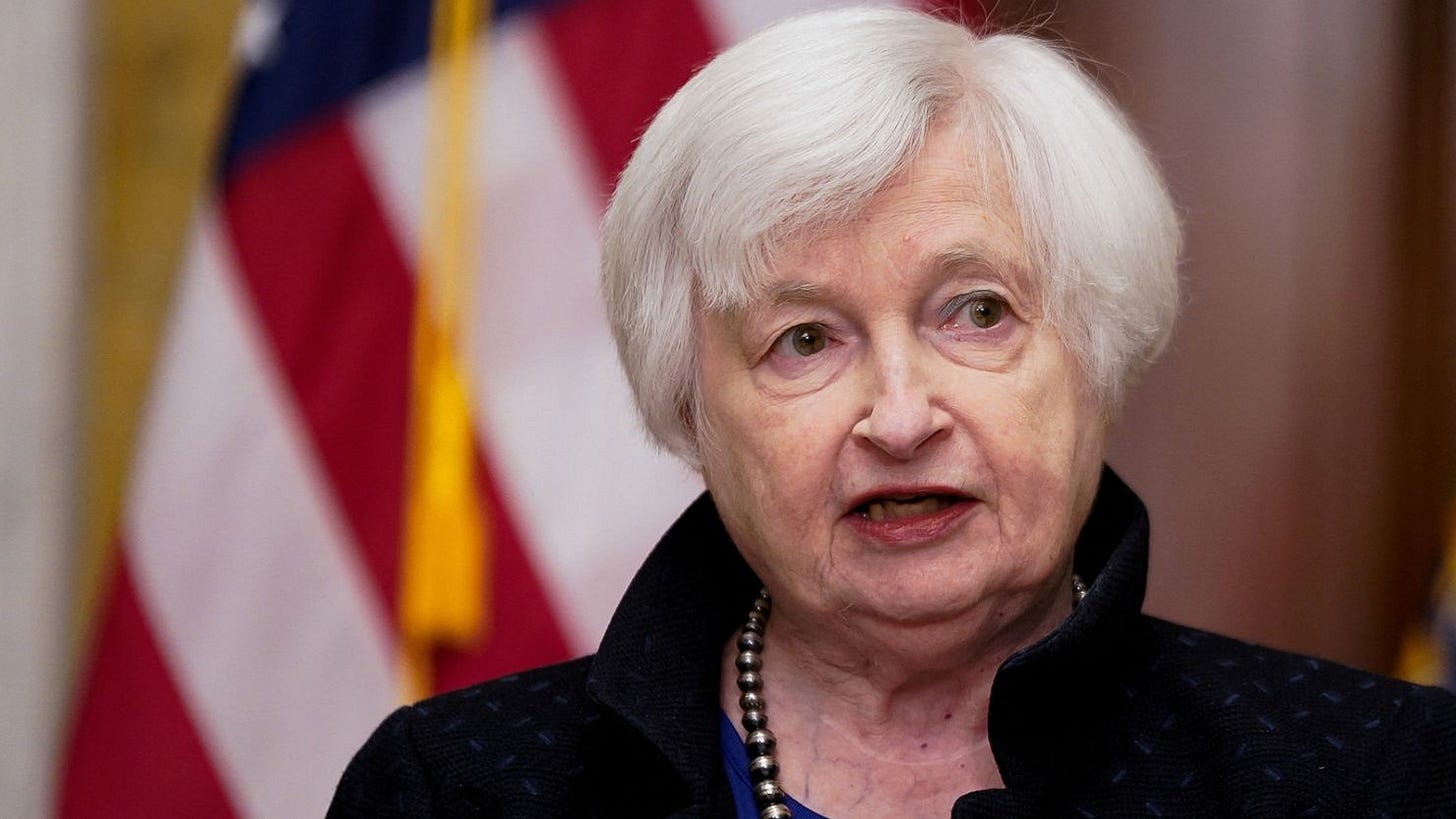China Hacks U.S. Treasury: Biden’s Final Failure or Trump’s First Test?
As Chinese hackers breach America’s financial nerve center, the spotlight turns to a vulnerable transition of power and the fight to secure the nation’s future.
In a stunning escalation of cyber warfare, Chinese hackers breached the U.S. Treasury Department in late 2024, targeting high-level officials, including Secretary Janet Yellen. This alarming intrusion comes at a pivotal moment for the United States: as President Biden nears the end of his term and President-elect Donald Trump prepares to return to the White House, questions about cybersecurity, national security, and geopolitical tensions are taking center stage.
The breach isn’t just a crisis of cybersecurity—it’s a reflection of the vulnerabilities in America’s critical infrastructure at a time of political transition. With the country poised for significant shifts in leadership and policy, the timing of this attack raises critical questions about its intent and potential impact on the incoming administration.
The Breach: A Strategic Target
Between September and November 2024, Chinese state-sponsored hackers exploited a vulnerability in third-party cybersecurity software used by the Treasury Department. They gained access to 419 computers, including files belonging to high-ranking officials like Treasury Secretary Janet Yellen, Deputy Secretary Wally Adeyemo, and Acting Under Secretary Brad Smith.
While the files accessed were unclassified, the hackers targeted key divisions, including the Office of Foreign Assets Control (OFAC), which oversees U.S. sanctions enforcement. This indicates a strategic focus on disrupting U.S. financial tools and intelligence, critical components of America’s global power.
As President Biden prepares to leave office, this attack serves as a stark reminder of his administration's challenges in securing critical systems. It also presents a significant test for President-elect Trump, who will inherit the responsibility of responding to this cyber aggression while navigating an already strained relationship with China.
The Political Context: A Nation in Transition
Presidential transitions are always a vulnerable time for the United States, but the stakes are particularly high now. As Biden exits amid criticisms of weak cybersecurity policies, the attack on the Treasury underscores concerns about whether the current administration has done enough to protect national security.
Donald Trump, preparing to take office for his second term, has been vocal about the need for stronger stances against China. His administration’s earlier efforts included sanctions, trade restrictions, and a focus on decoupling U.S. economic reliance on Beijing. This breach could serve as a rallying cry for Trump to double down on these efforts, framing his presidency as one of renewed strength and resilience against foreign adversaries.
Why Now? The Timing of the Attack
The timing of this breach is no coincidence. Cyberattacks during leadership transitions can disrupt policy continuity, undermine trust in government, and exploit periods of organizational flux. By targeting the Treasury Department—the epicenter of U.S. economic policy—the Chinese hackers may have sought to:
Gather Intelligence on Sanctions Enforcement: Understanding how the U.S. monitors and penalizes economic activities gives adversaries an edge in circumventing sanctions.
Exploit a Lame-Duck Administration: With Biden’s term winding down, attackers may have calculated that the response would be muted, giving them time to exfiltrate valuable data before new leadership takes charge.
Test the Incoming Administration: The breach serves as an early challenge for President-elect Trump, gauging how his team will address cyber threats and respond to Chinese aggression.
Trump’s Opportunity to Set a New Tone
As Trump prepares to re-enter the Oval Office, this incident presents a critical opportunity to redefine America’s cybersecurity and foreign policy priorities. His administration is likely to take a more aggressive stance on holding China accountable for its cyber activities. Key strategies could include:
Rebuilding Cyber Defenses: Increasing funding and oversight for federal cybersecurity programs, particularly those involving third-party vendors.
Enhancing Offensive Cyber Capabilities: Expanding America’s ability to respond to cyberattacks with proportionate or escalatory measures.
Strengthening Sanctions Enforcement: Bolstering the Treasury Department’s ability to track and penalize malicious actors, ensuring sanctions remain a powerful tool of economic diplomacy.
Diplomatic Pressure: Leveraging international coalitions to hold Beijing accountable and establish clearer norms around state-sponsored cyber activities.
A Broader Pattern of Vulnerabilities
The breach also highlights systemic vulnerabilities that have persisted across administrations. While Trump’s return may bring a tougher stance on adversaries, the broader issue of cybersecurity requires bipartisan commitment. This attack is a reminder that America’s critical infrastructure—financial systems, energy grids, and defense networks—remains a prime target for adversaries.
The reliance on third-party software, like BeyondTrust, which was exploited in this breach, further underscores the need for tighter oversight and stronger partnerships with private-sector providers. The challenge for the incoming administration will be balancing immediate responses with long-term solutions to secure the nation’s digital infrastructure.
China’s Endgame: Exploiting American Weakness
The attack on the Treasury is not just about accessing data; it’s about testing American resolve. By striking at the heart of U.S. financial power during a political transition, China is sending a message: America’s vulnerabilities are fair game.
This is not an isolated incident but part of a broader pattern of Chinese cyber aggression, from targeting critical infrastructure to intellectual property theft. For the U.S., failing to respond decisively risks emboldening adversaries and eroding its position as a global leader.
Conclusion: A Defining Moment for Leadership
The breach of the U.S. Treasury Department is more than a cybersecurity crisis; it’s a defining moment for American leadership during a critical transition of power. As Biden exits and Trump takes office, the nation faces a choice: continue patchwork defenses or launch a bold, unified strategy to protect its critical systems and reaffirm its position on the global stage.
President-elect Trump has an opportunity to set a decisive tone, not just against China but in the broader battle for cybersecurity resilience. The question is not if America will respond, but how—and whether that response will be strong enough to deter future aggression.
In this new era of digital warfare, the stakes couldn’t be higher.




